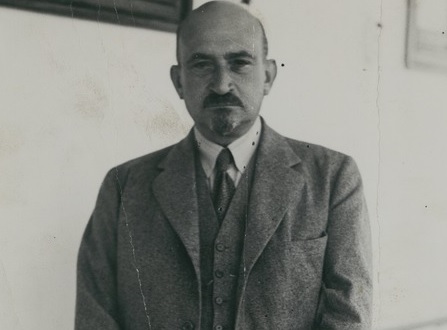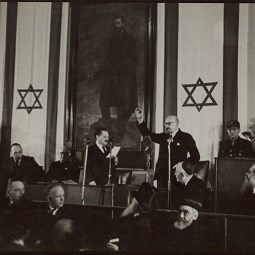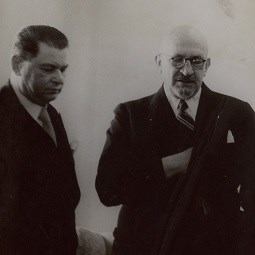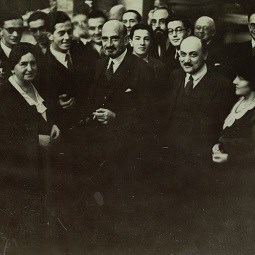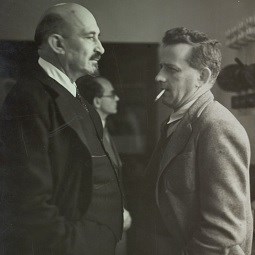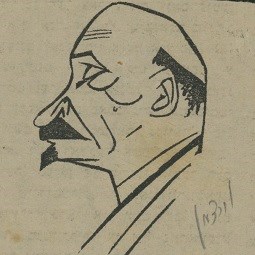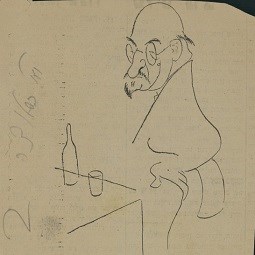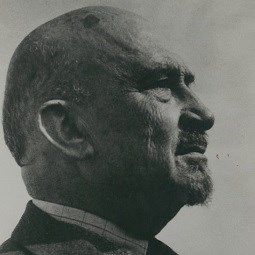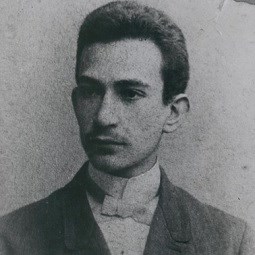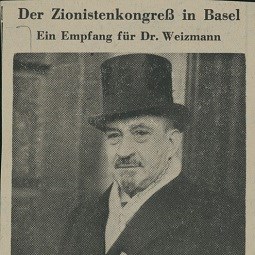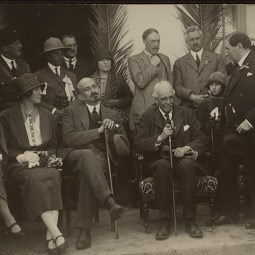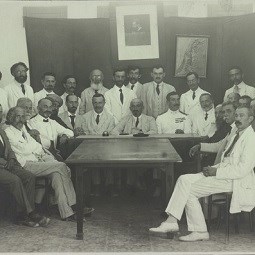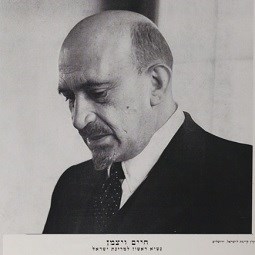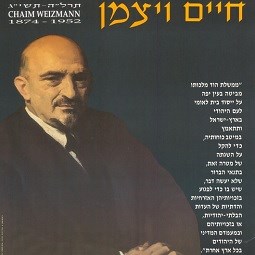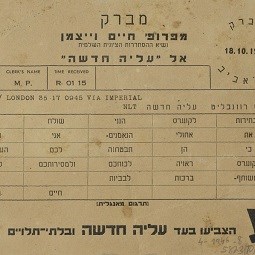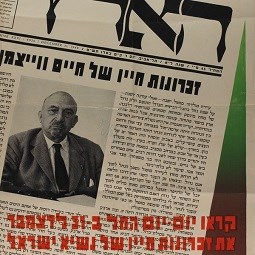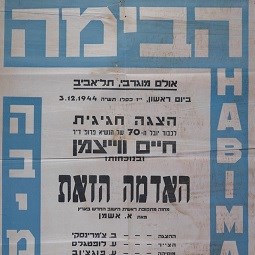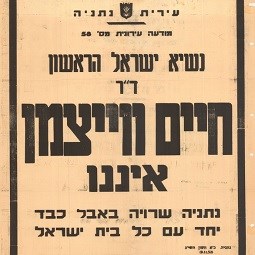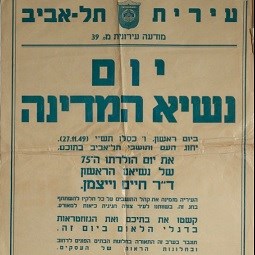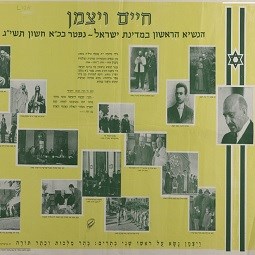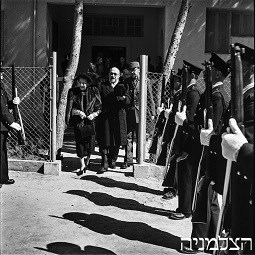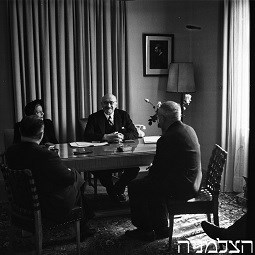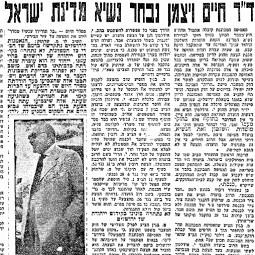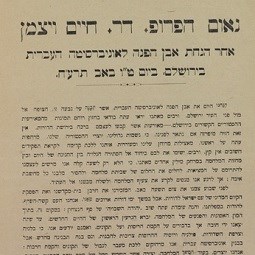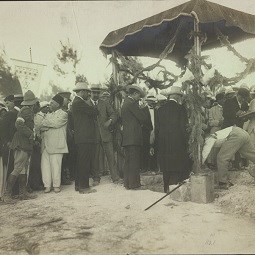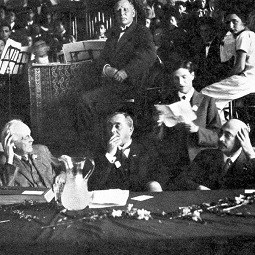Chaim Weizmann
Chaim Azriel Weizmann (1874–1952) was a Zionist leader, the first president of the State of Israel, a president of the World Zionist Organization, the founder of the Jewish Agency and among the founders of United Israel Appeal. Alongside his Zionist activities, he was also a world-renowned scientist. Weizmann is considered the father of "Synthetic Zionism". This stream promoted political activity alongside practical Zionism, expressed in the development of settlement and the strengthening of spiritual and cultural life in the Jewish community of the Land of Israel.
Weizmann was born in Russia to a large, traditional Jewish family. He acquired his academic education in Germany and Switzerland, where he completed a doctorate in chemistry. At the age of thirty, he joined the faculty at the University of Manchester. He and his wife Vera lived in the United Kingdom for three decades, where he became part of the scientific elite. Michael, one of his two sons, served as a pilot in the Royal Air Force and was killed in WWII.
His Two Loves
Weizmann said that his two great loves were Zionism and science. Indeed, his scientific achievements were integrated into his Zionist activities as early as the First World War. In his research, he developed a technology for producing synthetic acetone from corn just as the British Army was suffering a severe shortage of acetone needed for the production of smokeless gunpowder. His discovery was a tremendous boon to the war effort and aroused the admiration of Britain’s elite. At the same time, on the political front, Weizmann believed that the Zionist movement should adopt a pro-British stance. Accordingly, he exercised his natural ability of persuasion and connections in the British government to secure the Balfour Declaration, which was considered an unprecedented Zionist achievement and positioned Weizmann as one of the most prominent leaders of Zionism.
Weizmann, who believed in the supreme importance of science and saw it as a tool for the development of a modern economy, worked to promote higher education in the Land of Israel. He was one of the founders of the Hebrew University of Jerusalem and the Ziv Institute in Rehovot, which was renamed the Weizmann Institute of Science in his honor. With Israel’s declaration of statehood, Weizmann was elected the country’s first president, serving until his death in 1952.
Having dedicated his life to Zionist leadership and science, Weizmann left thousands of documents detailing his path, thought and activity. Many of these documents are preserved in the National Library of Israel and are available for public viewing. Among the items are his speeches, personal letters and official correspondence, photographs from various periods of his life, posters relating to him, his autobiography, as well as books, studies and articles about him. The items offer a wealth of information about one of the most intriguing and important figures in the history of Zionism.

 Sign in with Google
Sign in with Google
 Sign in with Facebook
Sign in with Facebook
